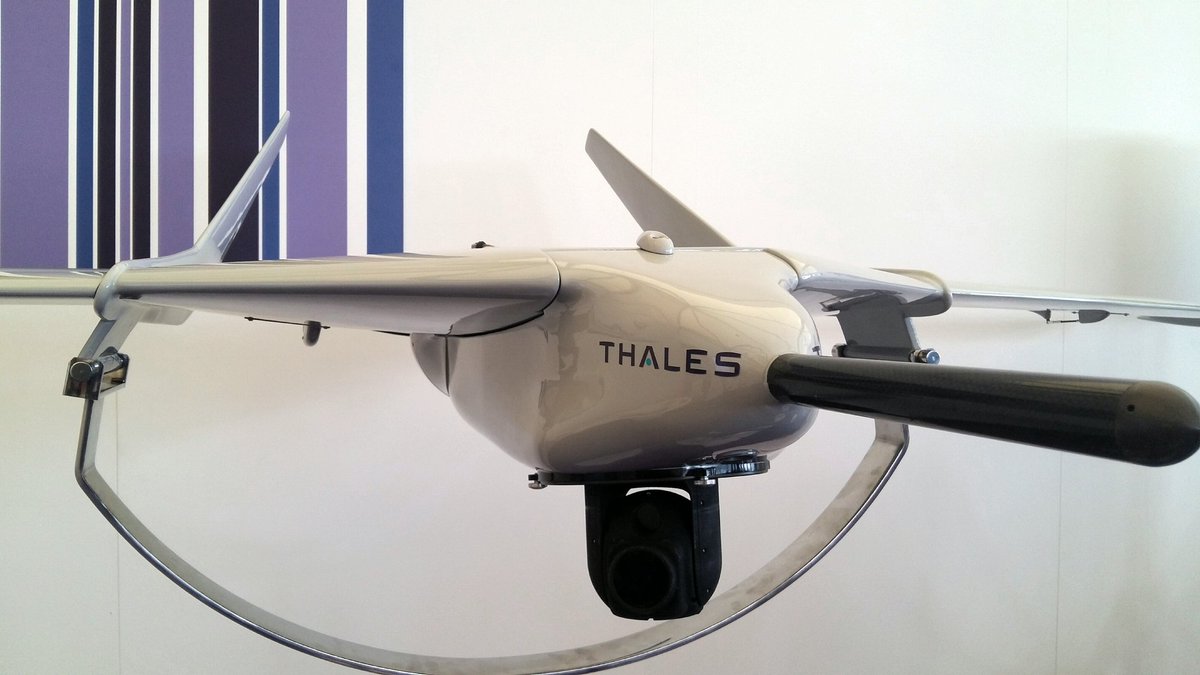
SHAH ALAM: The Malaysian Maritime Enforcement Agency will be getting the latest version of the Thales Fulmar mini-UAV – the Fulmar X – by year end. MMEA will be operating the Fulmar X on board its New Generation Patrol Craft (NGPC), the first of six is being built by Destini Shipbuilding Sdn Bhd, a subsidiary of public listed, Destini Bhd.
Fulmar X builds on the earlier system build the Thales Spanish division. The latest version was unveiled at the Farnborough air show yesterday.
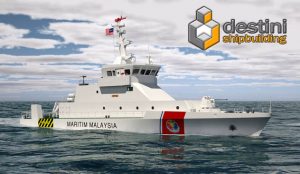
With the early arrival of the Fulmar X ahead of the commissioning of the first NGPC, MMEA will have the chance to operate the UAVs from other vessels or from land if it wishes to do so.
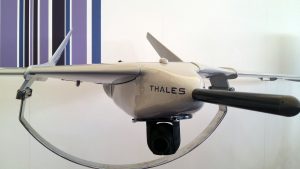
The 20kg carbon fibre UAV has endurance of more than 8 hours and a range of 80 km. It is launched using a catapult and recovered automatically with a net, which can be operated in very confined areas such as a ship or vehicle.
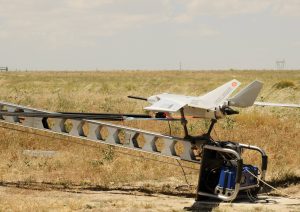
The recovery system is available in a number of configurations for quick, easy deployment from a fixed location with no dedicated infrastructure. According to Thales,the UAV carries a combined EO/IR sensor so that operations can continue into the night.
With its modular design, the Fulmar X system can readily be fitted with other equipment such as AIS automatic identification system or Mode 3/C transponder to meet the requirements of each customer and mission.
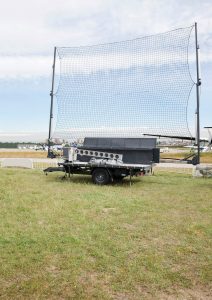
Fulmar X makes extensive use of off-the-shelf technology to benefit from the latest developments in sensors and engines, while complying with the highest standards of reliability and safety.
Deployed as a stand-alone system or fully integrated to wider surveillance systems, Fulmar X is designed to share its intelligence. Easy to deploy and maintain, the Fulmar X delivers high performance for a wide range of missions, whilst maintaining low operating costs, making it a very cost-effective UAV solution.
— Malaysian Defence
If you like this post, buy me an espresso. Paypal Payment

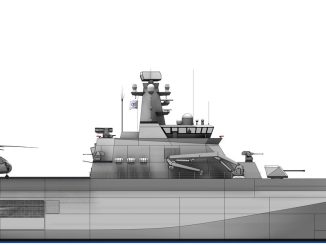
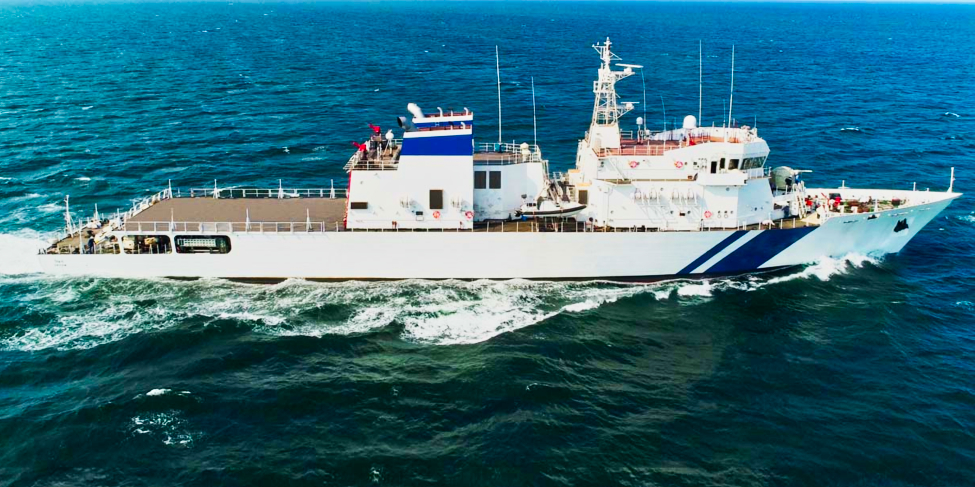
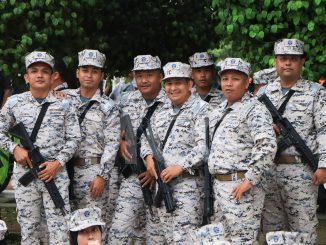
There you go, China’s actions has no legal basis, so says the International Court of Arbitration in the Hague.
Remember what I said about belligerent and greedy Chinese? Beijing wants to ignore the ruling but risks heavily damaging it reputation. What a load of hogwash this ‘peaceful rise of a superpower’.
That’s why we (Australia) are building 12 new subs. China it seems is going to be a threat to the region.
Dear Marhalim
Anything on the proposed MMEA’s OPV?
Reply
Coming soon
Around 12 new long range subs and several AWDs would not really create a dent to the the Chinese Navy might of around 300+ ships( aircraft carrier, heli carrier,warships and subs). It would need the combine strength of Malaysia, Vietnam, Australia, Indonesia, Japan and South Korea to contain the Chinese Navy Armada in SCS assuming the US Navy and Singapore don’t interfere. Plus the Chinese got another secret weapon up her sleeve..All the nations mentioned here exported nearly 20% or more of the products to China, an economic retaliation by the Chinese would put most of these nations in recession for years if not decade
Reply
Personally I would advocate a people revolution instead of going head to head
The only way to strategically cripple China is by blocking their access to Malacca straits, which might have worked like 15 years ago.
Nowadays with China pushing for Thai Canal and the CPEC rail route in full swing (which connects Gwadar port in Pakistan to Xinjiang in western China via railways and motorways), they’ve rendered the Malacca straits as strategically irrelevant
I wait and see what PRC will do after this, and what Govt of Malaysia will say & do too. Hope the parties involved are more careful now.
Good to know that MMEA opted for the latest Fulmar version and will get to operate it this year.
Kamal,
Bear in mind that in the event of troubles in the South China Sea; China can’t deploy all of of its assets there. It still has to ensure that it has enough assets to deploy against Taiwan and Japan and off course also against the U.S. in areas close to home. Also, like all navies; not all of China’ ships will be operational at any given time and some will be kept at home as a strategic reserve.
The question of whether Australia’s assets are sufficient in numbers should not arise as Australia – in the event of troubles – will not operate alone but with the U.S. Talk of a multi national coalition is fine but in reality a multi national coalition, such as you mentioned – despite looking fine on paper – will be very tricky as there will be command and control issues to sort out and political issues; not to mention the fact that all the countries have different levels of capabilities. Any multi national effort has to involve the U.S.; with no U.S. involvement it won’t happen.
Let say one day we got bully by the Chinese, maybe one of our island seized by them, by force. What will our ‘reply’ be like? Personally I see no chance of our navy to do much. I think our only chance to put a dent into the PLN/PLAAF would be the air force. But with our limited number of fighter jets susahlah….
When I think further, the only assets that we have that could provide any meaningful resistance is to have Su-30 as top cover and F/A18 as maritime strike with harpoon. Or use Su-30 for both top cover and conduct Brahmos strike. However, even if the Type-52C or Type 52D has only 50% of the capability of the Aegis cruiser/destroyer, our chance to hit anything is like ~0… 🙁
The situation in South china sea has escalated drastically with the Hague resolution favoring Philippines. Taiwan will deploy its lafayette frigates and god knows what china will do next, they are even mulling adiz in South china sea.
Btw what is the sensor in the fulmar’s pinocchio nose?
Reply
I believe it is a sensor probe
Cha Cha Boom,
Totally agree with you on the scenario, based on my unexpert (if there is such word in English) calculation/projection, it would take around 50 to 70 SU30/F18D type aircraft to have a lucky hit into one of the ships in PLAN Navy should that scenario happen (this would also assume all the attacker’s jet would be totally loss to the PLAN air defense cover of around 60km to 100km)..We may have a lucky hit using Exocet SM39 from the scorpene, but that only assuming it can evade the 109 submarine chasers belonging to the PLAN..which is less than 1% i guess.
So agreed with Azlan, without uncle sam’s participation, any military retaliation by us against the PLAN under the above scenario is useless
Cha Cha Boom – ”Let say one day we got bully by the Chinese, maybe one of our island seized by them, by force.”
First ask this : what possible advantage would China gain from such an act? Also, in the event that China wanted to get tough, China doesn’t have to physically seize anything; merely to restrict access …… And access can be restricted without interfering with the freedom of navigation in the area.
Cha Cha Boom – ”Personally I see no chance of our navy to do much.”
Are you stating the obvious or just understating things? How can a navy with the budget the RMN has, compete with a navy with the budget PLAN has? At the end of the day, neither us or any of our neighbours has the ability to wage a protracted, high intensity war with the likes of China.
kamal aerif – ”it would take around 50 to 70 SU30/F18D type aircraft to have a lucky hit into one of the ships in PLAN Navy should that ”
You are assuming that all the weapons and countermeasures on the PLAN ships are performing 100 percent as advertised by their OEMs …… And like many, you seem to be focusing more on missiles rather than the heavyweight torpedo and mines [both of which are widely used and also hard to deal with]. A missile the weight category of an Exocet or Harpoon will cause serious damage to even a ship with a large displacement but might not necessarily sink it or cause enough damage to the extent that the ship can’t participate in the fight anymore; a heavyweight torp will break the ship’s keel; as will a mine.
kamal arief – ”but that only assuming it can evade the 109 submarine chasers belonging to the PLAN..which is less than 1% i guess.”
It’s not as clear cut as that as there are so many factors at play including luck, the skill of the ASW operators, water conditions, the element of surprise, the skills of the sub’s crew, etc, etc, etc and never underestimate how hard it is to detect and track a slow moving and quiet sub.
Look at the Falklands war; the premier NATO ASW navy had such a hard time tracking [and this in open deep waters where its generally easier to perform ASW compared to shallow waters] a few SSKs from a country with a bare fraction of the defence budget that Britain had and an armed forces with a bare fraction of the operational experience that Her Majesty’s armed forces had [from decades of actual ops experience]. There also have been numerous exercises where SSKs have penetrated the defensive screens of carrier groups and got close enough to launch torps. In an actual war scenario, nothing is for certain.